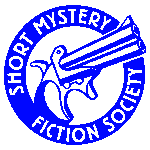
The Christian bible (and tenets of other religions) admonishes us to honor our fathers. Unfortunately, it’s taken us awhile to get around to it.
For instance, a day to honor them was first proposed in the U.S. in 1910 by Sonora Smart Dodd, a Spokane, WA woman who thought fathers deserved equal recognition with mothers. But when President Woodrow Wilson suggested making it a national observance a few years later Congress balked, contending it would become commercialized. (Can you imagine Congress today missing an opportunity to commercialize anything?)
Sen. Margaret Chase Smith of Maine chastised Congress in 1957 for ignoring fathers while paying tribute to mothers. In 1966 President Lyndon B. Johnson issued the first presidential proclamation. But it wasn’t until 1972 that it finally became a national holiday, signed into law by President Richard Nixon.
To say we have been remiss in failing to equally honor both our parents would be an understatement.
My Dad’s been gone 26 years now, but I don’t think there’s a day goes by that doesn’t remind me in some way of his character and guidance. I may not always have followed his advice. Yet, looking back on it now, I realize how often his judgment was right.
Dad was a railroader most of his working life, a rough and demanding occupation. He grow up in a tough and ethnically-mixed neighborhood in which he learned to use his fists as well as common sense and picked up a smattering of several languages. Dad also loved music and taught himself to play a number of musical instruments. He and my mother also had a local reputation as ballroom dancers. While my sister inherited some of this musical ability I missed out on that gene. I also love music, but I get static even trying to play it on the radio. As to dancing, I’m better at tripping over my own feet.
He was also one of the most creative people I’ve known. When my sister and I were young he spent many hours in his shop creating sulphur diamond jewelry and coal novelties which he sold to supplement his income. With the decline of deep mining, material for those pursuits became difficult to get and he turned his attention to ‘picking’ and restoring/refinishing antiques, an enterprise in which I joined him. We shared many happy hours attending sales and scouring the countryside for goods. This largely replaced the comradeship we had enjoyed earlier in hunting, fishing and camping and continued until I went off to the Army.
I cherish the fact we had those times together. I’m also glad he lived long enough for my children and my nieces to know him. He had a temper, never shirked saying what he felt and couldn’t stand a hypocrite. You always knew exactly where you stood with him and, if you were his friend, you couldn’t find a more loyal one.
So here’s to you, Dad. I’m not contributing to Hallmark’s bounty for a sloppily sentimental card. But I hope you know how much we love and miss you.


